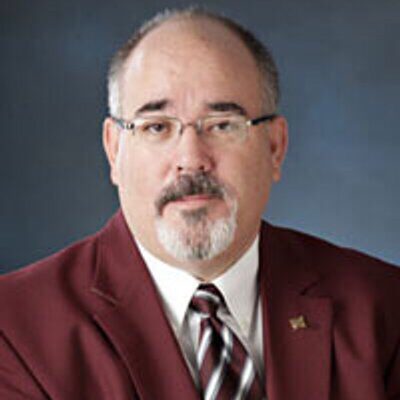
By: Sid Salter
For voters, the June 26 primary runoff elections are unfortunately looking like low turnout, low interest affairs that don’t promise much to voters in terms of the opportunity to substantially change their ballot choices in the Nov. 6 general election.
In the state’s U.S. House races, the nominees of the respective major parties have in great measure already been chosen.
Only the state’s Third Congressional District Republican runoff election holds any real intrigue for primary voters as District Attorney Michael Guest of Brandon, who led the June 6 GOP primary ticket with 28,701 votes or 44.86 percent of the vote, faces businessman and consultant Whit Hughes of Madison, who ran second in the primary with 14,299 votes or 22.24 percent of the vote.
The Guest-Hughes runoff race has generated little in the way of fresh information for voters other than a rather predictable tempest in a political teapot over debates. After the primary, Hughes challenged Guest to a debate which Guest’s campaign essentially ignored citing a large number of candidate forums and appearances prior to the primary.
With Guest’s margin of victory in the primary, it’s not unexpected that his campaign would ignore debate requests. Given the fact that both Guest and Hughes live in the Metro Jackson area, turnout in the north, east, and south portions of the far flung district are especially expected to suffer in the runoff.
The eventual GOP nominee will face Democrat Michael Ted “Big Country” Evans of Preston and Reform Party candidate Matthew Holland in the Nov. 6 general election.
In the First Congressional District, incumbent Republican U.S. Rep. Trent Kelly will face Democrat Randy Mack Watkins and Reform Party candidate Tracella Lou O’Hara Hill on Nov. 6. In the Second Congressional District, incumbent Democratic U.S. Rep. Bennie G. Thompson faces no Republican opposition and will face Reform Party challenger Irving Harris on Nov. 6.
In the Fourth Congressional District, incumbent GOP U.S. Rep. Steven Palazzo will face Democratic challenger State Rep. Jeramey Anderson and Reform Party candidate Lajeena Sheets on Nov. 6.
If the U.S. House races generate little draw to the polls in the June 26 primary runoffs, the state’s two U.S. Senate races offer only slightly more draw for statewide voters and that’s only in the Class l U.S. Senate race on the Democratic side.
Mississippi voters will elect two U.S. senators in the 2018 elections. There is a regular election Class I Senate seat up for grabs for a full six-year term to run from 2019 to 2025. Mississippi’s incumbent Republican Class I U.S. Sen. Roger Wicker of Tupelo will face Libertarian and retired U.S. Navy diver Danny Bedwell of Columbus and Reform Party perennial candidate Shawn O’Hara of Hattiesburg in the Nov. 6 general election.
The Democratic nominee in the Class l Senate race features a primary runoff showdown betweenattorney and State Rep. David Baria of Bay St. Louis and businessman Howard Sherman of Meridian (the husband of actress Sela Ward). Baria has the apparent endorsement of the state’s Legislative Black Caucus, but political novice Sherman led Democratic primary balloting over Baria.
Then there’s a special election Class II Senate seat being contested for a partial term that will end in 2021. The nonpartisan special election will be held Nov. 6.
Mississippi’s interim Class II U.S. senator is Republican Sen. Cindy Hyde-Smith of Brookhaven, appointed by Gov. Phil Bryant to fill the unexpired term of former U.S. Sen. Thad Cochran, who stepped down from the post in April citing persistent health problems.
Challenging Hyde-Smith in the nonpartisan special election for the right to succeed Cochran is former municipal candidate Tobey Bartee of Gautier, former Democratic U.S. Secretary of Agriculture and congressman Mike Espy of Madison and attorney and veteran Republican State Sen. Chris McDaniel of Ellisville (who lost a bruising 2014 GOP primary to Cochran).
So on June 26, voters will decide a Democratic U.S. Senate primary to face Republican incumbent GOP Sen. Roger Wicker and will choose a Republican nominee in the Third Congressional District race. Turnout, which wasn’t good on June 6, isn’t expected to improve much on June 26.










